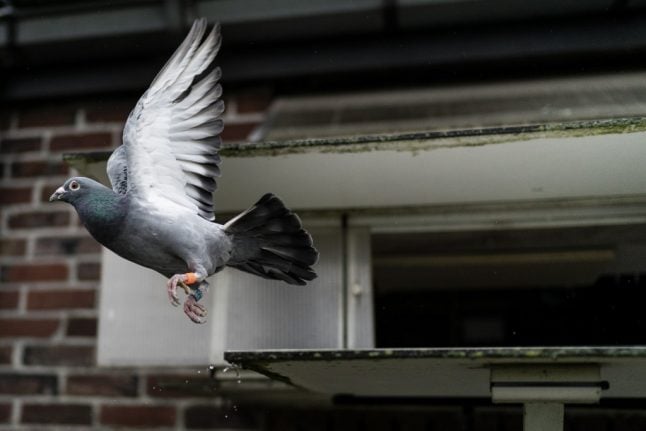Certain species of pigeons have an uncanny ability to find their way home to their coops from any distance. That is why pigeons were widely used to carry messages from one military unit to another in World War I and II.
But only the Swiss army had kept its pigeons long after the war ended — until 1996. They have been on standby for decades in case of invasion— this time from the Soviet Union.
The birds “have been specially trained for homing and are used to flying long distances over all kinds of terrain,” Samuel Iselin, a spokesman for the Federal Office of Signal Troops in Bern, said just before the pigeon troops were disbanded.
But since the country had not been involved in either of the world wars, it is safe to assume that Swiss pigeons had never seen active combat duty or witnessed any frontline action.
There is also no record of any of them falling victim to enemy fire, unlike their French counterpart, Cher Ami, which was hit while delivering messages during the Battle of Verdun in 1916. She was awarded the posthumous Croix de Guerre medal for her bravery.
It is perhaps natural to think that pigeons carried messages in their beaks, like the olive branches. But in fact, messages were written on light paper, rolled into a small tube, and attached to the bird’s leg.
From 1919 until 1996, Switzerland owned 7,000 pigeons; another 23,000 were on standby to use in case of national emergency.
In the early 1990s, the Defense Ministry decided to save $476,000 a year by finally retiring the flock and focusing on more modern communication methods.
But in a truly Swiss fashion, a pro-pigeon group had collected 100,000 signatures for a referendum to enshrine the carrier pigeon service in the Swiss constitution.
In the end, however, bird enthusiasts and the army reached a compromise: a new foundation was established especially to care for the retired military pigeons in their new civilian life.
Thirty elite birds were pigeonholed, as it were, to live out their retirement in warmer climes.
They were sold to a private South African buyer, and they didn’t even have to fly to their new home themselves. “The pigeons were handed over in Zurich and put aboard a South African Airways flight,” Iselin explained.



 Please whitelist us to continue reading.
Please whitelist us to continue reading.
Member comments